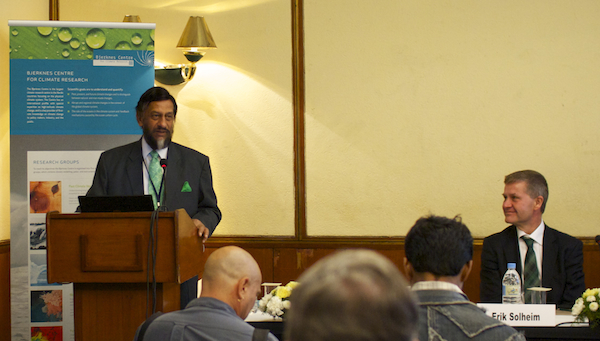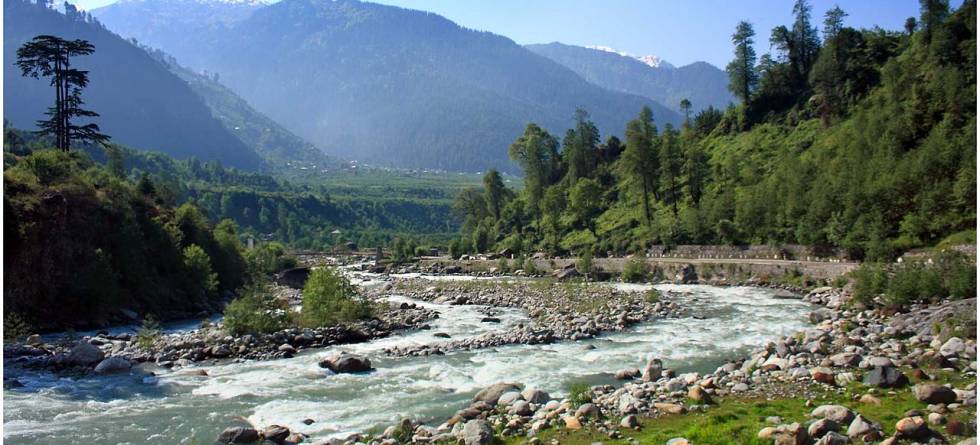"The Indian subcontinent is particularly vulnerable to climate change because of its diversified socioeconomic and climatic conditions. Changes in monsoon variability and glacier melt may lead to droughts over the Indian plains as well as extreme rains and abrupt floods in the neighboring Himalayas [Turner and Annamalai, 2012]. Through our work with the NORINDIA project, we found that there is a risk of 50% glacier melt in the Beas River basin, which covers northwest India and northeast Pakistan, by 2050", writes Michel d.S Mesquita and colleagues in a new paper synthesising the work in the NorIndia project.
Read the full EOS paper here: Forecasting India's Water Future
Mesquita gives a summary here:
"Due to its diversified socio-economic and climatic conditions, the Indian subcontinent is vulnerable to the ensuing climate change and related impacts. Changes in monsoon variability and glacier melt may lead to droughts over the Indian plains and also extreme rains and abrupt floods in the neighboring Himalayas. Hence, understanding the monsoon variability and the hydrological cycle in the Hindu-Kush-Himalayas region for the baseline and future time scales would enrich the information available for informed decision making.
This is the objective of NORINDIA, a project funded by the Norwegian Research Council through a competitive proposal call to understand the hydrological impacts of climate change in India. NORINDIA has brought a fresh hydrological assessment in India through the use of IPCC AR5 scenarios, global and regional climate modeling, and the use of the new WRF-Hydro hydrological modeling system. A key result is the risk of a 50% glacier area loss in the Beas river basin by 2050."


